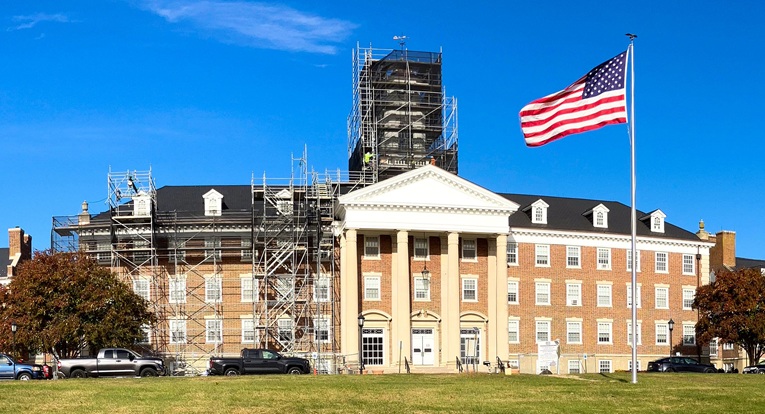The Greenbelt City Council meeting of July 12 resounded with complaints about administrative failures relating to the meeting and its content and interfering with the ability to complete crucial agenda items. Resident Lore Rosenthal pointed out errors in meeting links that might be preventing citizens from attending the Zoom meeting and councilmembers griped about late or unavailable documents. Complaints were made that the action on the Fraternal Order of Police (FOP) contract was mislabeled as a resolution when it was not (a resolution requires first and second readings). The upshot was that the vote on the four-year collective bargaining agreement (CBA) between the city and the FOP was delayed to August, despite what appeared to be council-wide agreement on its provisions.
Councilmember Judith Davis referred to “sloppy administration” because of delay in getting materials to council and brought up the misuse of the word “resolution” in the agenda. Later in the meeting she focused on these shortcomings, stating that, though council had undoubtedly caused its share of problems in other cases, the CBA issue was not the fault of council and that she hoped the FOP would understand.
Greenbelt Is Behind
In describing the provisions of the new agreement, City Solicitor Steve Silvestri, who negotiated on behalf of the city, said that Greenbelt’s police department is one of the lower-paid among local jurisdictions, making it harder to recruit new early-career and more-experienced police officers. “We have fallen behind,” he said, with officers up to three steps below (later corrected by FOP Counsel Patrick McAndrew to up to seven steps or approximately 20 percent of salary) where they would have been had council funded those steps annually.
CBA Provisions
The agreement includes a 20-percent raise spread across four years and other changes in benefits, but these financial provisions seemed less of a concern to members of council than the language over the state Law Enforcement Officers Bill of Rights (LEOBR). The prior agreement with the FOP gave Greenbelt officers rights in addition to those granted by the state in the LEOBR but the new contract would not. The suggestion was made by Mayor Colin Byrd to remove any reference to the LEOBR from the contract as it was unnecessary to quote something that was legislated by the state and would automatically apply. Byrd made the point that state laws on, for example, carjacking, were not included in the agreement because they applied anyway and said that, similarly, there was no need to call out LEOBR specifically. Byrd also wanted to see the agreement itself as it would appear with the changes implemented.
CBA Benefits to City
Silvestri explained that the new agreement extends the term from three to four years to lock in the costs and create a longer window before a new agreement is needed. It also ties the restoration of missed steps to the generation of revenue. In terms of the recruitment of experienced officers, the new agreement allows a newly recruited but experienced officer to come in at a step more appropriate to their level of experience. Requirement for body cam usage and incentives for physical fitness are the other major changes – and apart from these few provisions, much of the contract remains as previously stated.
Silvestri indicated that a “tracked changes” version of the proposed contract would be available within the week following the council meeting as well as a version of the contract with the changes implemented.
FOP Disappointment
Despite Davis’ protestations of council’s innocence, McAndrew – speaking for the FOP – expressed his deep disappointment (and that of numerous other police-related individuals texting him in real time) about the delay in voting which, he felt, “sent a profoundly negative message” to city officers. He felt that the contract should be voted on and that any minor changes that were required could be tackled as a separate issue.
In the absence of a motion, no vote was taken and the mayor referred the matter to the next meeting.



